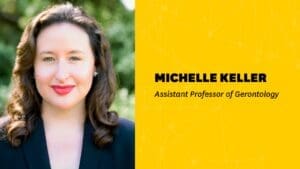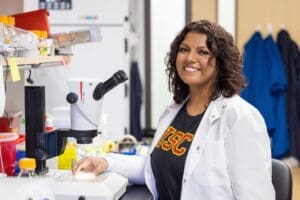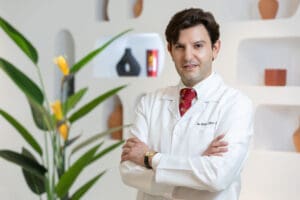Daily Trojan interviewed Jon Pynoos and Leon Watts regarding the USC Leonard Davis School’s partnership with the Rebuilding Together organization to make homes safer for older adults. Pynoos said the partnership is “complex, growing, rich. … We can take what we have learned in research and put it into practice and involve students in something very real, that improves, directly, the lives of older persons and persons with disabilities.”
U.S. News & World Report featured a study by Margaret Gatz, Andrei Irimia and colleagues that found very low rates of dementia in two Amazonian indigenous groups. “Something about the pre-industrial subsistence lifestyle appears to protect older Tsimane and Moseten from dementia,” said Gatz, the lead study author. The study was also featured in Daily Mail, Science Alert, Free Malaysia Today, IFLScience, and New Atlas.
Times Now (India) mentioned Valter Longo’s research in an article on how exercise improves lifespan.
Los Angeles Times quoted Jennifer Ailshire in a story on 76-year-old snowboarder Dick Schulze, the US’s oldest competitor in the sport. There are several reasons for the rise of autumnal athleticism, including better diet, better training and physical conditioning, and less exposure to disease, she said. “Our conditions of living have improved. We’re less likely to have accidents and injuries than in the past. Our world is a healthier, safer world than it used to be. … In terms of the world of athletics, exercise science and the science behind competition have also improved over time, so that athletes just have more longevity than they’ve ever had before.”
The Scientist mentioned a study led by Valter Longo and colleagues on how a fasting-mimicking diet improved breast cancer outcomes in mice.
Financial Advisor quoted Senior Associate Dean Maria Henke regarding the importance of financial gerontology and educating advisors about the challenges and opportunities faced by older adults. “When advising about retirement options like whether to save money by moving to a different community, a financial gerontologist would consider factors like risk of social isolation, access to healthcare or opportunities for meaningful engagement in addition to only financial impacts,” she said. The article also quoted Distinguished Scholar in Residence Paul Irving and alumna and financial gerontologist Cynthia Hutchins.
The Atlantic featured research by Mirielle Jacobson of the USC Leonard Davis School and Tom Chang of the USC Marshall Schoolin a story on using financial incentives to motivate individuals to get vaccinated. “I think there are a lot of people who are in this camp of ‘Yeah, I’m gonna get a booster but I’m not in any rush.’ And I would think those folks are probably pretty responsive” to financial incentives, Jacobson said.
Longevity Technology interviewed Valter Longo on the importance of getting fasting right in the pursuit of a longer and healthier life. “So now everybody’s fasting, and we don’t seem to realize that fasting is just a word,” says Longo. “It’s like eating – is eating good for you? What does that mean? It can be good for you and terrible for you. It’s the same with fasting – it depends how you do it.”
Next Avenue featured a profile of Brett Anderson, USC Leonard Davis master’s student and former lead singer of the rock band The Donnas. “Sometimes, members of the aging population don’t know how to obtain the medical or physical treatments they need because they don’t know how to get the processes started,” says Anderson. “I want to help them get set up with the resources they need. Once they can have stability in those areas, then we can focus on the emotional needs.”
U.S. News & World Report quoted Jennifer Ailshire on strategies for aging successfully and not feeling limited by age. “My grandmother would go out dancing into her 80s,” she said. “I thought it was really fantastic that this woman who loved dancing would go to a place where there were no other older people, just middle-aged and younger people, because she loved to dance.”






